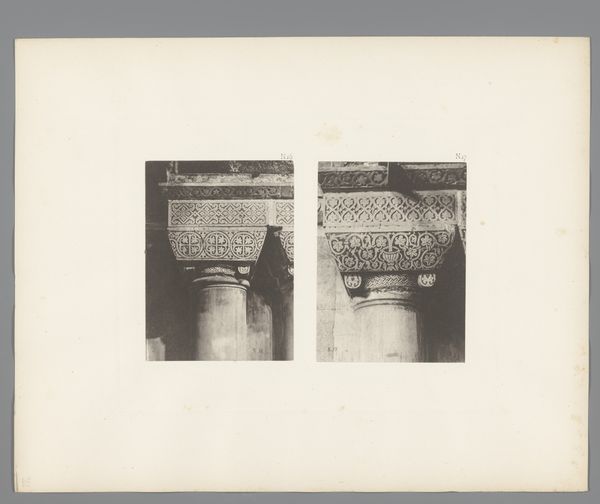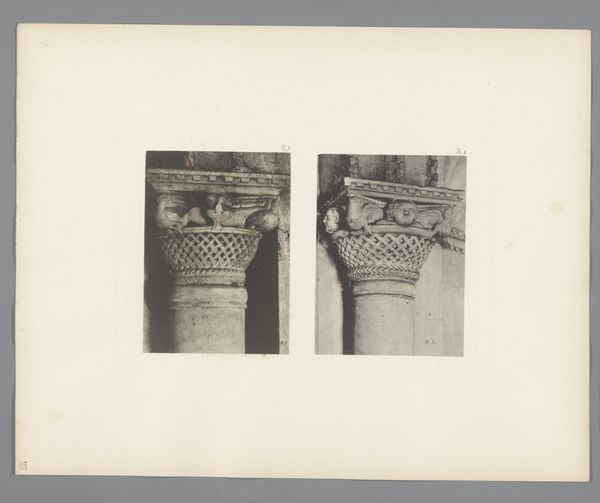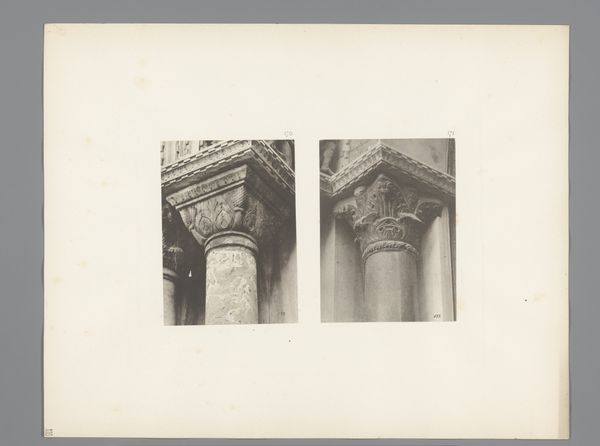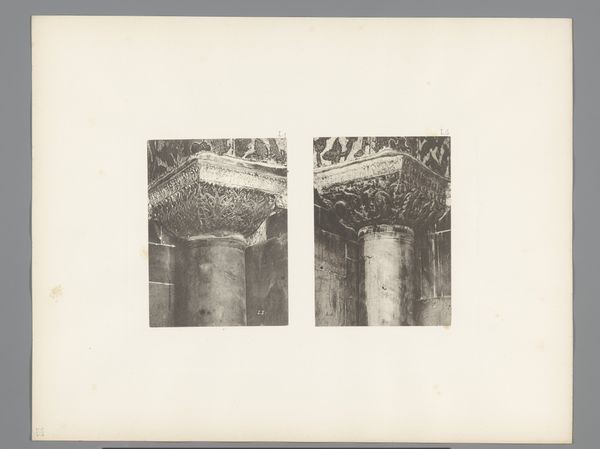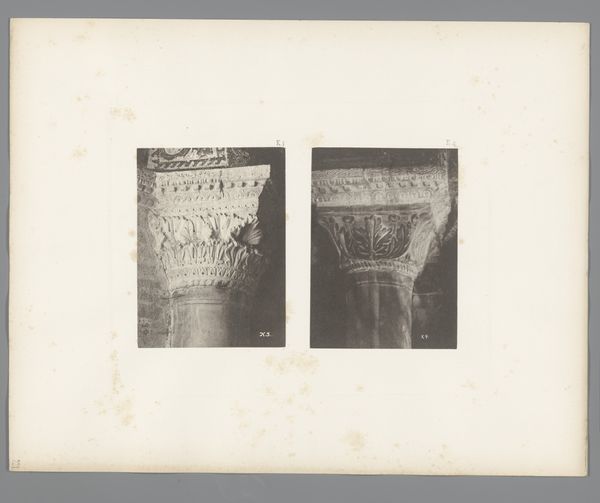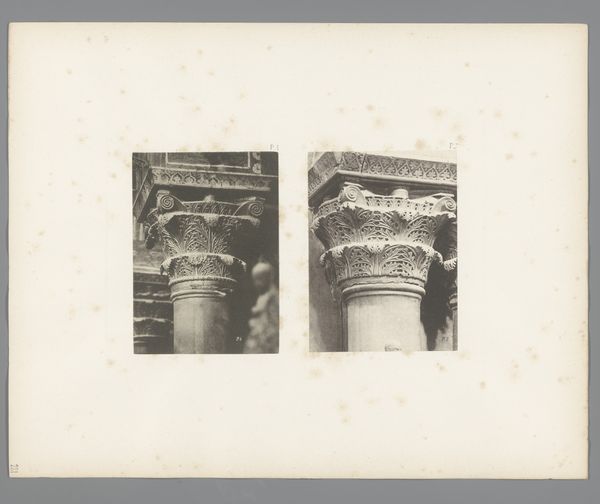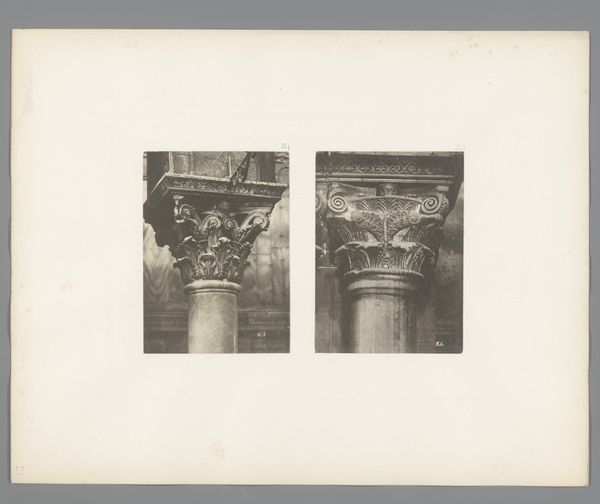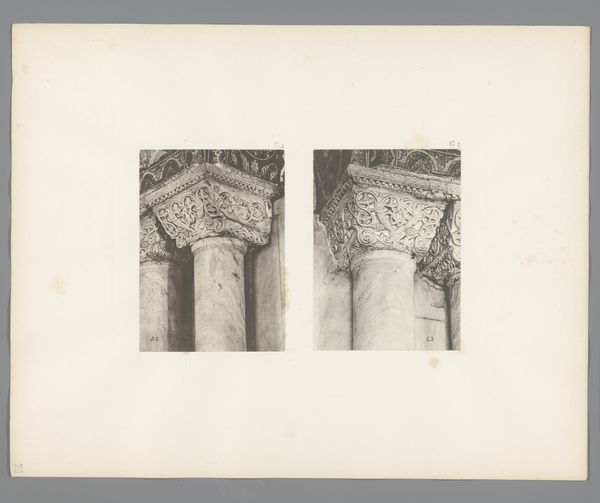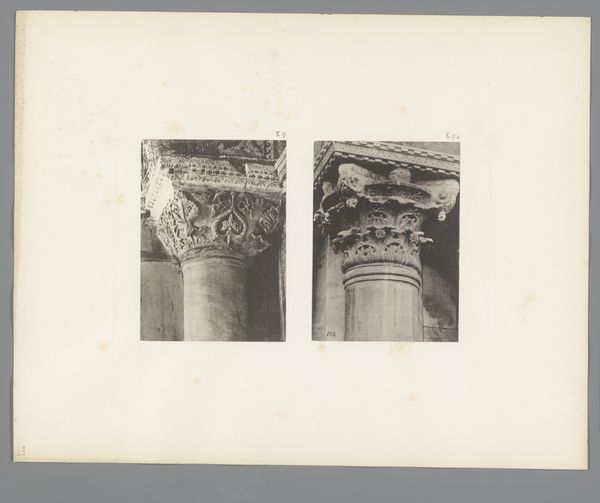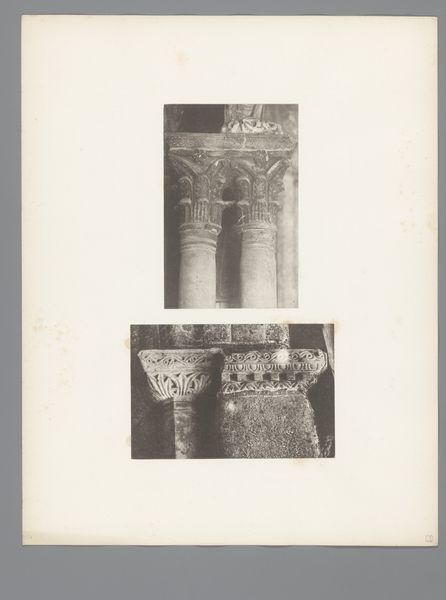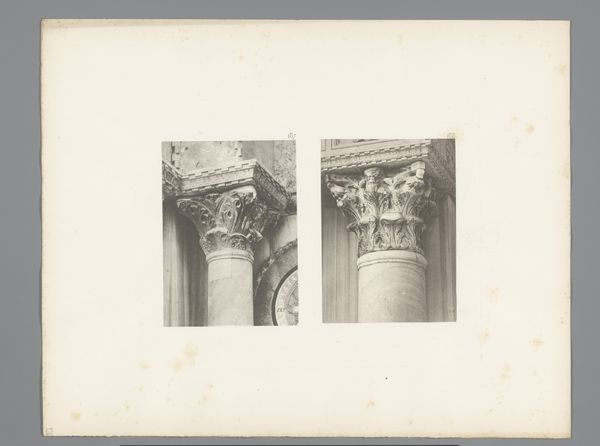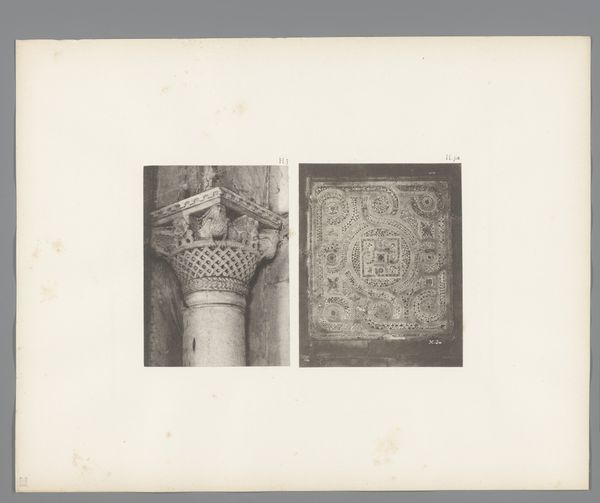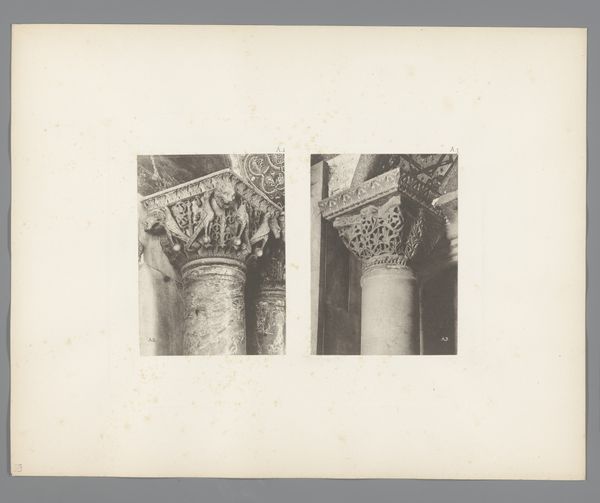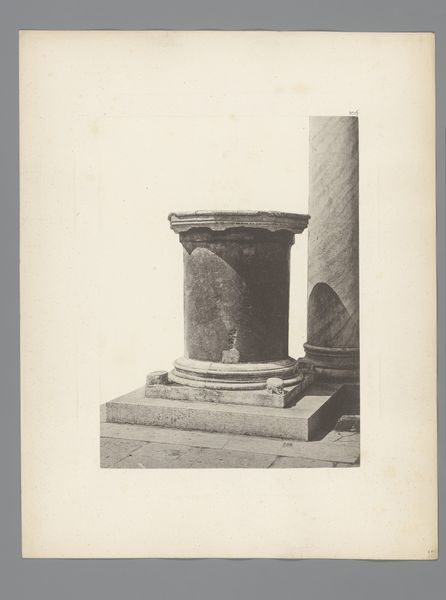
Twee afbeeldingen van Korinthische kapitelen van de San Marco in Venetië before 1884
0:00
0:00
print, photography, architecture
# print
#
classical-realism
#
photography
#
geometric
#
ancient-mediterranean
#
cityscape
#
architecture
Dimensions: height 313 mm, width 392 mm
Copyright: Rijks Museum: Open Domain
These two images of Corinthian capitals in Venice’s San Marco were captured by Carl Heinrich Jacobi sometime in the 19th century. He has used photography, which was itself relatively new, to capture the stonework. Consider the material: stone, and the incredible labor needed to extract, transport, and then, most importantly, to carve it. The weight of the stone is belied by the lightness of touch apparent in the intricate acanthus leaves and volutes. Each cut into the stone would have been carefully considered. This work was completed by skilled artisans, who likely spent years mastering their craft. Yet, the image itself flattens the handwork of the sculptures. Photography in the 19th century was also a highly skilled job but it represents a different kind of labor. The mechanical and chemical processes needed to create an image contrasts with the manual work of the original sculptures. Looking at the original materials and processes behind both the columns and this photograph allows us to consider the relationship between different forms of labor, skill, and image making.
Comments
No comments
Be the first to comment and join the conversation on the ultimate creative platform.
